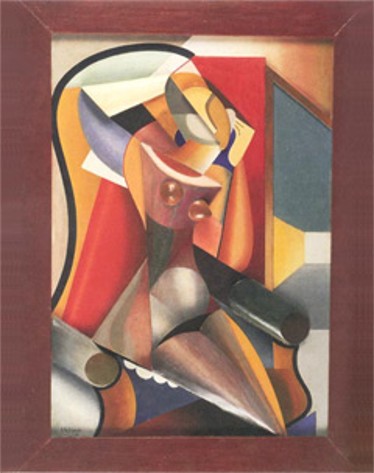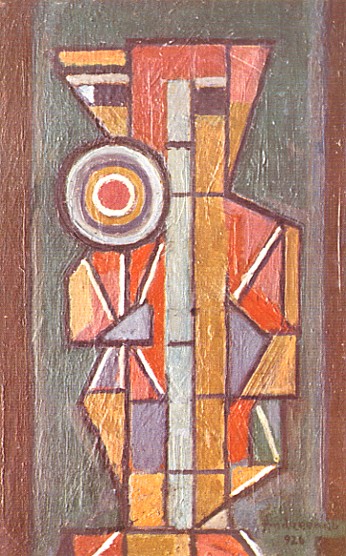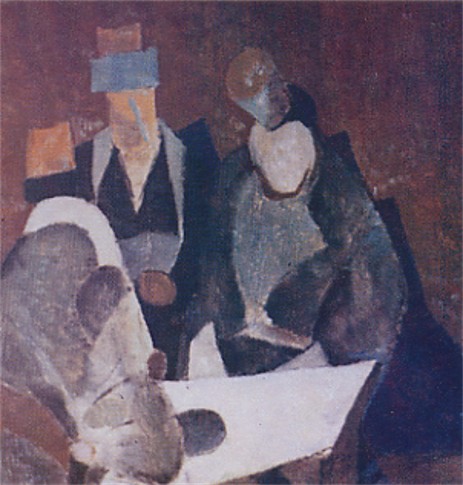Cubism
Cubism. Artistic movement that regarded painting not as a depiction of nature, but as a free play of forms subject to loosely treated laws of geometry. Cubism reduced all forms to their primary state—sphere, cone, cylinder, and cube—and at the same time introduced new materials into art, often combinations of paint, wood, metal, glass, wire, and so on.
Mykhailo Boichuk and his school were closely related to the cubist movement as early as the mid-1910s. Alexander Archipenko is considered to be the first cubist sculptor in world art. The following Ukrainian artists made use of the innovations introduced by cubism: Vasyl Yermilov, Vadym Meller, Oleksander Bohomazov, Mykhailo Andriienko-Nechytailo, Oleksa Hryshchenko, and Pavlo Kovzhun. They often combined the cubist style with Constructivism.
.jpg)
.jpg)

.jpg)

